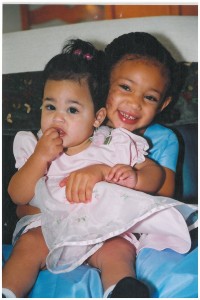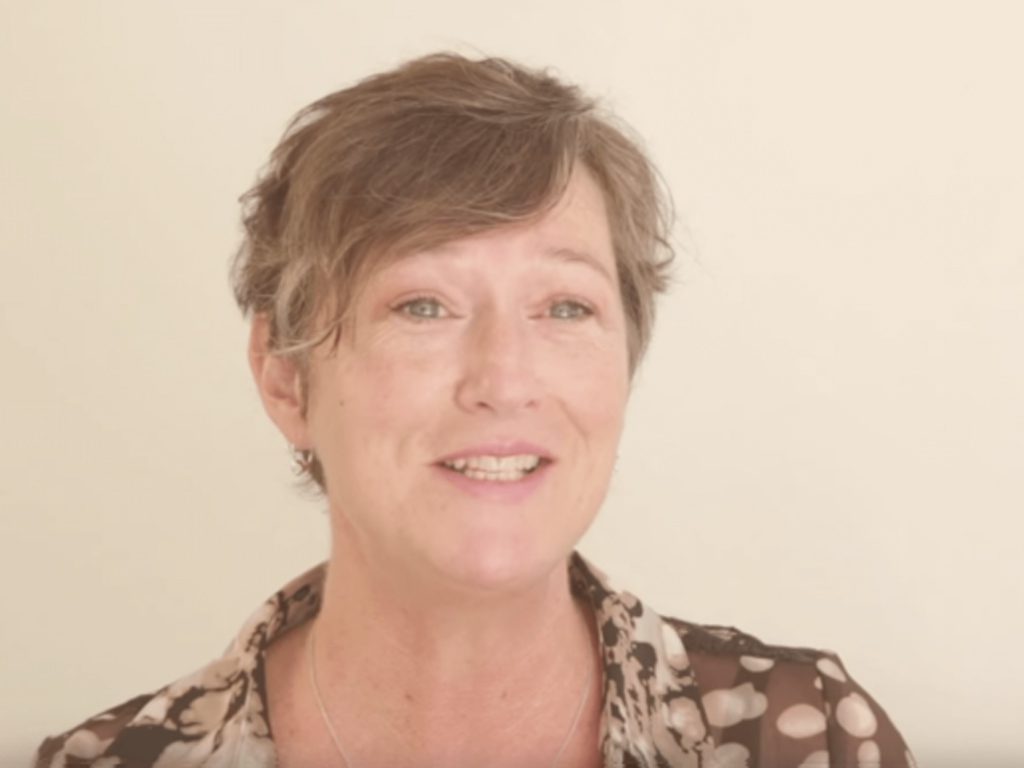When my husband and I started the adoption process, we were open to all possibilities, including parenting a child of any ethnic heritage. We were young and idealistic. Sixteen years later, we are now parents of two wonderful girls, ages 15 and 11. Both our girls are half Caucasian and half African American. Looking back, I think of how naïve we were then about adopting a biracial newborn and how glad I am now that we were.
Education on biracial adoption

When we brought our first daughter home, I immediately set out to be the best mom I could be. One of the items on my checklist was to properly educate myself on raising a biracial child. I have to admit, for the next couple of years, I read a lot of literature on this subject and spoke to a good number of adoption professionals. The end result was a great deal of fear!
I felt scared that my baby girl may somehow be wounded because my husband and I are white. Then I began to have feelings of anger at these “experts” who seemed to insist that a black family would be a better family for a black or biracial child. To me, they were saying my husband and I did not measure up as parents – that we could not adequately teach her about African American culture or help her when she experienced racial discrimination.
Getting over my fear
It turned out, for the most part, that this fear and anxiety was a waste of my time (like a lot of parental fears!). The only good part of my uneasiness was that I felt continually reminded to make sure my daughter was experiencing a culturally diverse environment. Luckily, this has not been difficult living in the San Francisco Bay Area. I kept it in mind when I chose her schools, doctors and activities. Now it is second nature to me. Sometimes fear can drive you to do better, and for that, I am thankful.
What didn’t come through in my research on biracial adoption were the rewards of being a multiracial adoptive family. Our diversity has enriched our lives in many ways. It has also helped me teach my girls the value I hold most dear–that all people on this earth are equal and deserve the same amount of love, respect, tolerance and justice. As for my kids, they are doing great. I know most of their lives are still ahead of them, but a lot of the groundwork has been set. Both of my daughters are very proud of their mixed heritage and being part of a diverse family. (I am Catholic and my husband is Jewish, so they get to experience two religions as well).
Talking about discrimination
As a family, we talk about racial discrimination. We also talk about other types of discrimination. Some types of discrimination my husband and I have personally faced and others we haven’t. My husband experienced anti-Semitism both as a child and an adult. I have dealt with gender discrimination starting from a young age by my own dad and brothers and then again in the workforce.
Yes, we can talk from experience when it comes to that, but we feel equally prepared (or unprepared) to help them with racial discrimination as well. I don’t think we do a better job or make them feel better because we were discriminated against, too. Teaching our children about their African American heritage has been a great experience for all of us, but it is just a part of the many cultures we like to learn and talk about. We also talk about our country’s changing demographics and how this will affect their life experiences as they grow older.
Acknowledging their heritage
What is interesting to me is that my daughters feel differently about their race at different times. My older child looks more African American and is perceived as black or biracial by most people. The public has a much harder time trying to figure out my younger daughter’s heritage. Because of this, their interactions with people about adoption have been different.
My guiding principle is to respect how they feel about their heritage at any given time. If my older daughter is enjoying her multi-ethnic heritage and doesn’t see herself as African American, that is okay with me. It’s what feels right to her. If, later, she becomes more interested in her African American heritage, I am happy to help her explore it more deeply. My younger daughter likes to talk about her southern roots, not so much her racial heritage. Lately, this interest is in the form of learning about southern cooking. It’s been a very tasty learning process for us all!

